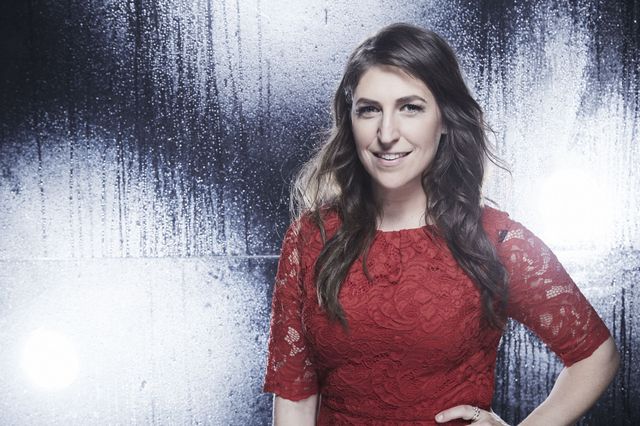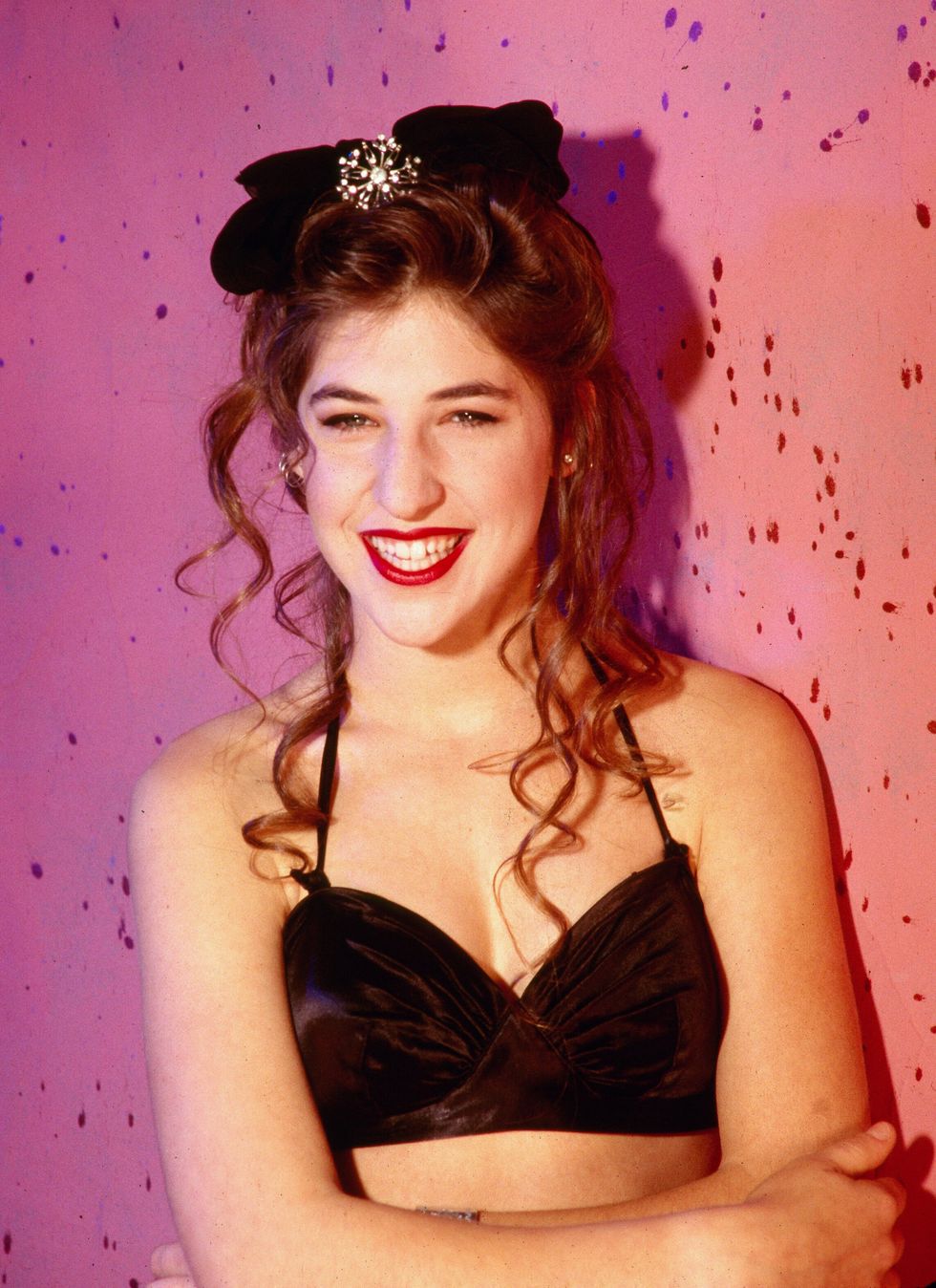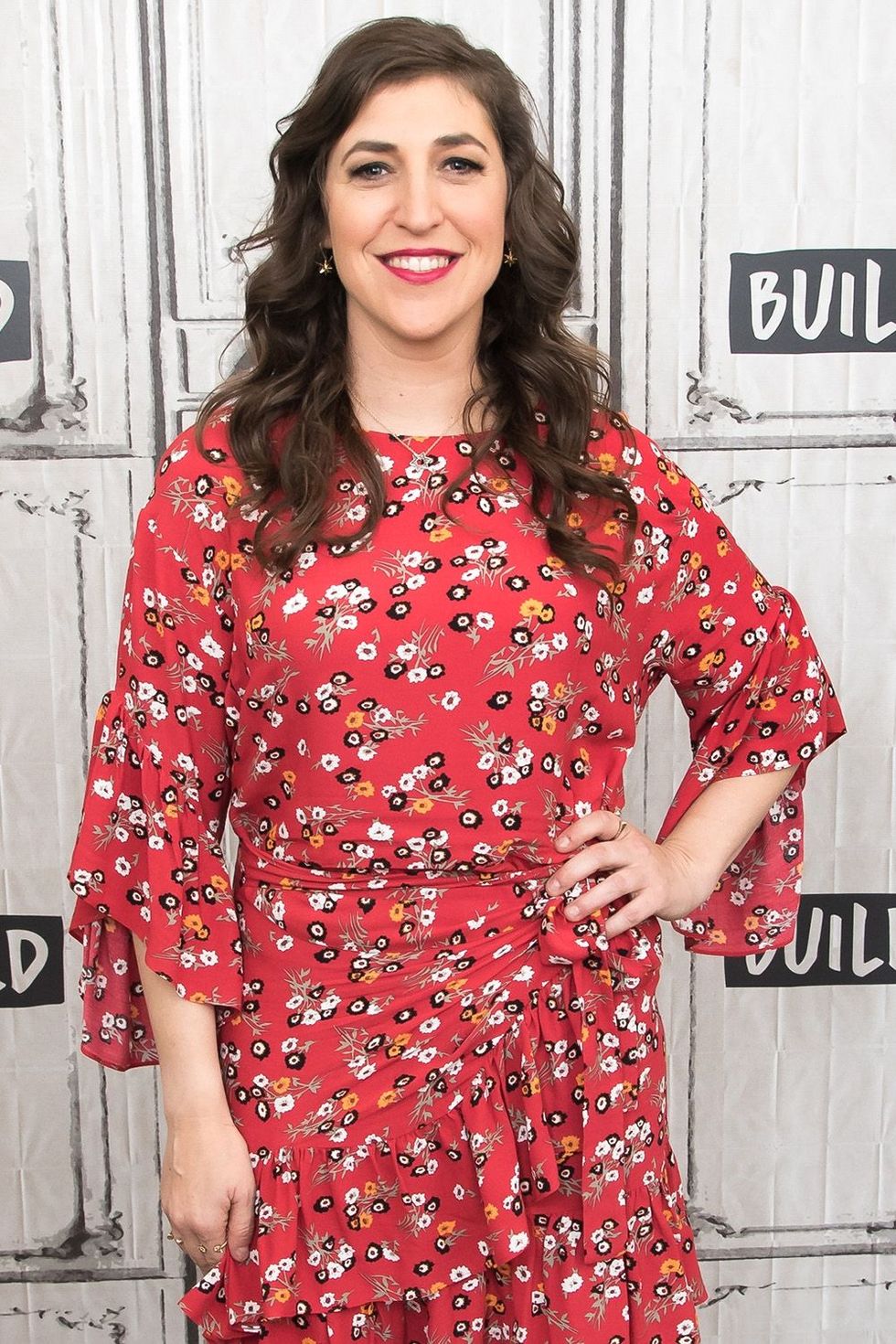Mayim Bialik has written a very confusing op-ed in The New York Times, seemingly about how being un-pretty helped protect her against sexual abuse in Hollywood.
The Big Bang Theory actress is now attracting a lot of attention for what seems to be, fairly obviously, an exercise in victim-blaming.
The article, called, Being a Feminist in Harvey Weinstein's World, largely avoids discussion of the victims of Weinstein's alleged harassment, or even really Weinstein himself, and instead focuses on 41 year-old Bialik and seemingly how she has managed to avoid being sexually harassed.
She reports at length about her own perceived unattractiveness, particularly in comparison to other girls and women in the industry, saying: 'I quickly learned even as a preteen actress that young girls with doe eyes and pouty lips who spoke in a high register were favoured for roles by the powerful men who made those decisions.'
She writes, 'And yet I have also experienced the upside of not being a 'perfect ten.' As a proud feminist with little desire to diet, get plastic surgery or hire a personal trainer, I have almost no personal experience with men asking me to meetings in their hotel rooms.'
There is a lot in her article, so let's unpack a few crucial things.
1. Yes, Unattainable Beauty Standards Are Bad And Designed By Men
It's easy to empathise with any woman who feels put upon by an institutional notion of 'beauty' that has been defined over centuries by what men want to see when they look at you. Yes, men have been allowed to make casting couch decisions based on looks when they should have been focusing on talent and any woman who has lost out on a role this way has suffered.
But do your refusals to diet or get lip fillers insure you against abuse? No.
2. Making Women Feel Guiltily At Fault For Their Sexual Abuse Is Never Okay
Bialik's op-ed feels weirdly and quite crassly damning of women who have suffered abuse. Her references to women setting their own boundaries continually circle back to how women dress and comport themselves.
By saying she committed to being un-pretty in her fight against the patriarchy, Bialik is also, whether inadvertently or not, making the assertion that the women that do spend time on their beauty regime, are in some manner inviting sexually predatory behaviour.
Despite remarking that: 'Women should be able to wear whatever they want, ' she also writes: 'I still make choices every day as a 41-year-old actress that I think of as self-protecting and wise. I have decided that my sexual self is best reserved for private situations with those I am most intimate with. I dress modestly. I don't act flirtatiously with men as a policy.'
As Gabrielle Union makes clear in her response, horrendous abuse can happen at any time, regardless of whether you put lipstick on that day, whether you're wearing something form-fitting, or whether you're dressed in a tunic working at a Payless:
3. And what about the women who just happen to be a 'perfect ten' in the eye of the man looking at them?
Whether you are beautiful by conventional beauty standards, or beautiful in the eye of the beholder who happens to be a leering predator, your 'beauty' is not your fault.
It is this which Emily Ratajkowski appears to take issue with:
4. Abuse Is Abuse, It Happens All The Time, To All Kinds Of People In All Kinds Of Moments
The whole notion of abuse is predicated on one dominant person subjecting a less powerful person to an uncomfortable, sometimes literally awful, situation which is beyond their control.
Abuse happens in broad daylight and in the shadows, it happens to both men and women of all ages, sizes, dieting inclinations and dress sense.
And it was this which offended writer Roxane Gay, who was gang-raped as a child:
To entrench the subject of sexual abuse so deeply within the context of how women dress and carry themselves is difficult. It's not that we're saying there isn't ever a relationship between beauty standards and sexual abuse, it's just that to frame it like this makes a victim-blaming interpretation too easy. It gives women agency in situations in which they have no power. And on that, we need to be clear, even if we have to repeat ourselves forever and ever: it is never the victim's fault.
There is a distinct lack of sisterly compassion in the article. At a moment when we really need a rally cry from women standing up for themselves and each other, it is irksome to read yet another statement that is not fiercely protective of those who have been abused.
Bialik has responded via her Twitter, claiming her quotes have been taken out of context and that she is a fierce feminist.
Daisy Murray is the Digital Fashion Editor at ELLE UK, spotlighting emerging designers, sustainable shopping, and celebrity style. Since joining in 2016 as an editorial intern, Daisy has run the gamut of fashion journalism - interviewing Molly Goddard backstage at London Fashion Week, investigating the power of androgynous dressing and celebrating the joys of vintage shopping.















